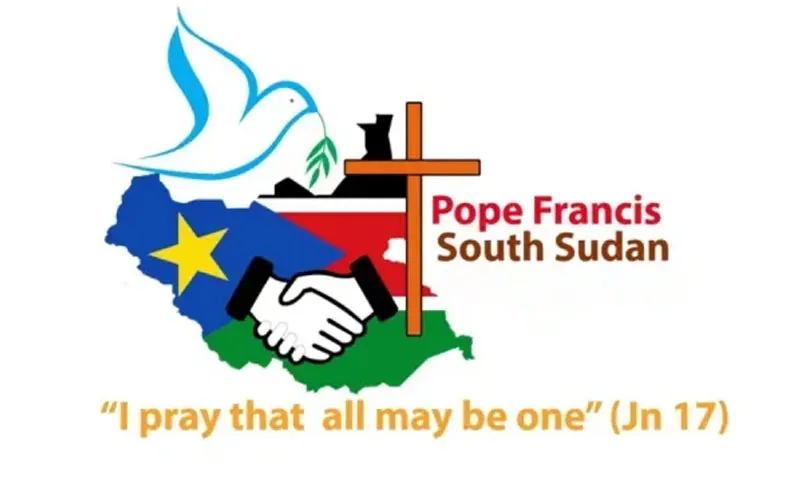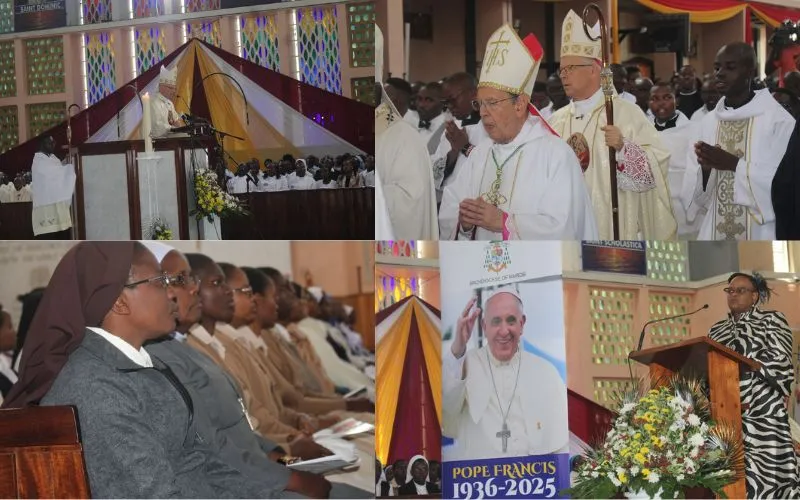“The Bishops will also share about the first phase of the Diocesan synods in preparation for the second and third phases,” the member of the Comboni Missionaries (MCCJ) who has ministered in South Sudan since 2005 said.
The Catholic Bishop reflected about the situation in the world today and said that he found it regrettable that there was more division than fraternity. He advocated for the spirit of fraternity, neighborliness and understanding.
“In a world that is always more polarized and divided, let the Christian community be a yeast of brotherhood and unity,” the Italian-born Bishop who has been at the helm of Rumbek Diocese since his consecration on March 25 said.
He continued, “There are too many conflicts and wars around. Too often we get used to seeing others as enemies; we fight them with our secret weapons to defeat them.”
“But in order to defeat your enemy you have to know and understand him. And when you reach that level of understanding your neighbor, he is an enemy no more, but a friend,” Bishop Carlassare said, adding, “The best way to win a war, it is not to start it at all.”
(Story continues below)
The Bishop who traveled to Khartoum from Juba for the ongoing SCBC Plenary Assembly after a five-day visit to the Nairobi-based financial hub of his Episcopal See looked back at the October 13-17 stay.
“It was an occasion to be in touch with the important work of fund-raising, logistics and administration done on the behalf of the Diocese of Rumbek by the staff of Bethany House,” Bishop Carlassare told ACI Africa October 21.
Bethany House in Nairobi, he said, is a premise that “was established by Late Bishop Cesare Mazzolari in time of conflict to make operations in South Sudan possible. And the staff of Bethany house are until now committed to that same purpose to facilitate evangelization and human promotion within the territory of our Diocese.”
“I have a strong understanding that the ministry of the Bishop has the responsibility to unite all other ministries to the service of the kingdom of God,” he further said in response to the impact of his Bethany House visit.
Bishop Carlassare continued, “The Diocese does not belong to the Bishop alone; and the Bishop cannot embrace all the Diocese alone. God calls many people through baptism to be members of this family (the Church), take up responsibility and embrace all human family especially those people who are left behind, marginalized; those who do not know the warmth of love and faith in God; those who, wounded by violence and war, look for healing and peace.”
“In Nairobi I strengthened this awareness of communion in different ministries: all for the same purpose,” the 44-year-old Bishop added.
He also recalled his October 16 afternoon in Nairobi, saying, “I was happy to meet a Christian community of South Sudanese that, though far from their country, still gathers together to pray. It means that God is never far from wherever we are.”
“My message to the community of South Sudanese in Kenya was about the power of prayer,” Bishop Carlassare said, and added, “Indeed, prayer is the strength of the weak, which is stronger than the weapons of the powerful ones.”
He continued, “Prayer brings changes. First of all, prayer changes the heart of the person who prays; then, it changes society. There is no church without people who pray. And only prayerful people contribute to the betterment of the world by making society more human and gospel-like.”
The interaction with South Sudanese in Kenya who came together for Holy Mass on October 16, Bishop Carlassare said, “was a celebration of the Eucharist to make as one, one family, all brothers and sisters, sharing the same joys and sorrows.”
“I am always touched by the bond of unity that faith and love for Jesus Christ generates among us people,” the Bishop of Rumbek told ACI Africa October 21.
Fr. Don Bosco Onyalla is ACI Africa’s founding Editor-in-Chief. He was formed in the Congregation of the Holy Ghost Fathers (Spiritans), and later incardinated in Rumbek Diocese, South Sudan. He has a PhD in Media Studies from Daystar University in Kenya, and a Master’s degree in Organizational Communication from Marist College, New York, USA.








